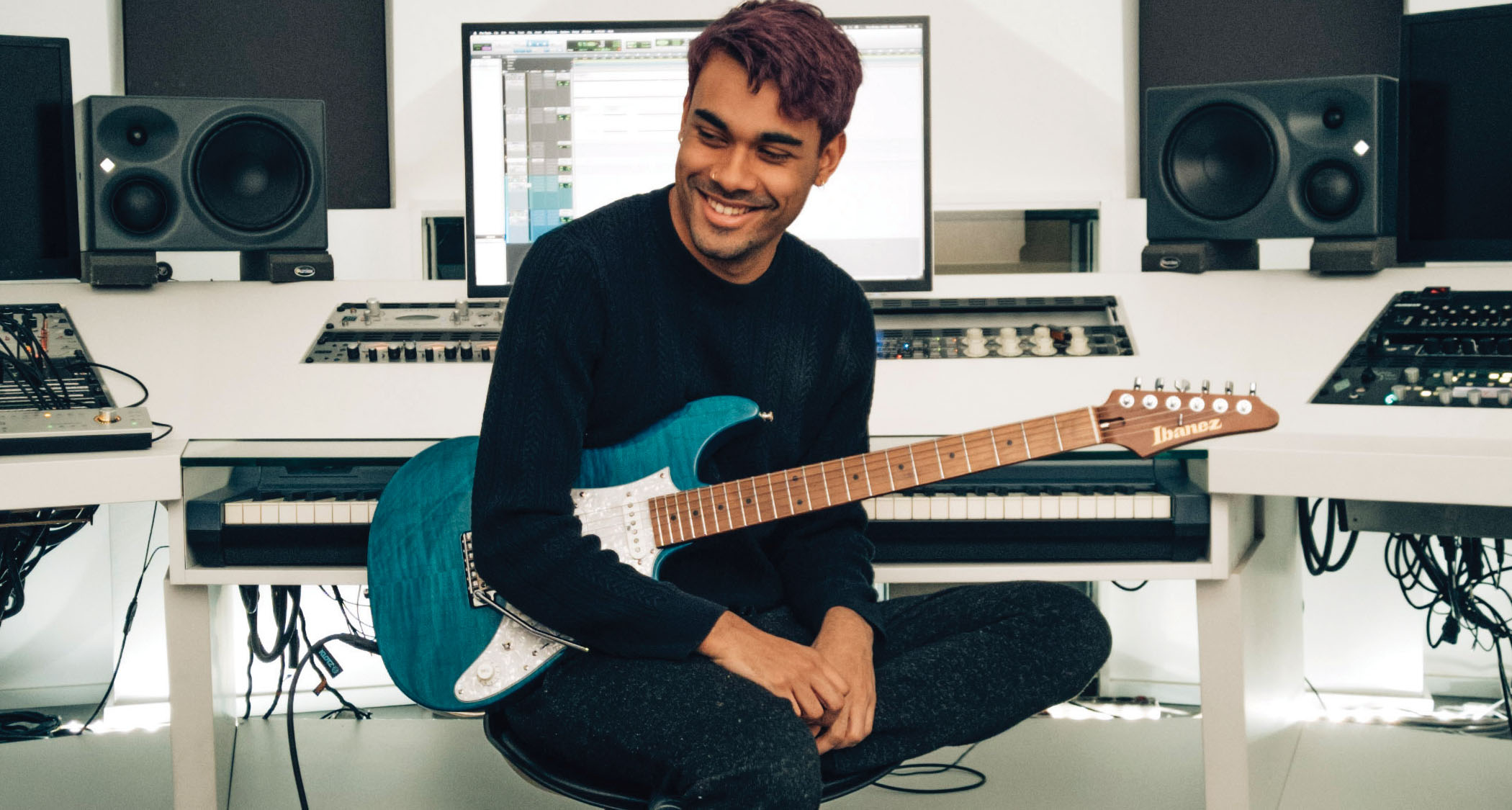“Everything we’ve recorded before sounded digital and almost heartless, so I went back to analog”: Unprocessed’s Manuel Gardner Fernandes on his return to tubes – and why Polyphia’s support means more than anything
Just as Unprocessed rediscover the taste for metalcore on new rager...And Everything In Between, guitarist Manuel Gardner Fernandes was seeking out real tube tone

Back in 2020, Unprocessed guitarist Manuel Gardner Fernandes found himself caught in the eye of a storm and going viral for all the wrong reasons.
He’d been accused of faking his videos by a fellow YouTuber, and though there was no truth to the insults hurled in his direction, it was still a disheartening experience.
So he did exactly what was needed to prove the doubters wrong; he threw himself into writing new music and hit the road to establish himself as very much the real deal.
“I decided to avoid staying in my bedroom like a lot of Instagram guitarists,” he tells Guitar World. “So I recorded and toured with my band. People could see I’m actually playing this stuff, unless I’m using some crazy plugin that does everything for me! I’d like to think these days I’m more associated with my band than social media.”
Last December, Unprocessed released their third album, ...And Everything In Between, which the guitarist describes as a return-to-roots kind of record that revisits their love for metalcore.
The German quartet made it their mission to hone in on the music that inspired them early on, roping in Polyphia trailblazers Tim Henson and Scott LePage to guest on tech-metal rollercoaster Die on the Cross of the Martyr.
“I wanted to make something dark but still with that technical edge,” he says. “Because we abandoned heavy stuff last time, it was very experimental with modern pop elements. We’ve toured with Polyphia a bunch, and there’s a lot of respect there. It sometimes feels like they believe in us more than the rest of the music industry.”
Get The Pick Newsletter
All the latest guitar news, interviews, lessons, reviews, deals and more, direct to your inbox!

The main instrument for the sessions was an eight-string Ibanez RG Custom, with some extra flavors from other Ibanez models like a Custom AZ and guitar/bass hybrid, plus a Telecaster for warmer clean tones.
Interestingly, having relied on digital gear like Guitar Rig and Axe-Fx in the past, this time round he found himself longing for organic sounds to breathe more life into the band’s futuristic wall of noise. Though it wasn’t exactly an old-school rig in the strictest sense, either.
“I wanted that tube sound back, so I used a Synergy amp with the IICP module,” he says. “Everything we’ve recorded before sounded digital and almost heartless, so I went back to analog. Synergy are still very modern – their technology is a fusion of new and old.
“I think digital rigs can be bad from a production standpoint. The master can look like a sausage on the computer, so squashed! This time it had to sound real.”
- ...And Everything In Between is out now.
Amit has been writing for titles like Total Guitar, MusicRadar and Guitar World for over a decade and counts Richie Kotzen, Guthrie Govan and Jeff Beck among his primary influences as a guitar player. He's worked for magazines like Kerrang!, Metal Hammer, Classic Rock, Prog, Record Collector, Planet Rock, Rhythm and Bass Player, as well as newspapers like Metro and The Independent, interviewing everyone from Ozzy Osbourne and Lemmy to Slash and Jimmy Page, and once even traded solos with a member of Slayer on a track released internationally. As a session guitarist, he's played alongside members of Judas Priest and Uriah Heep in London ensemble Metalworks, as well as handled lead guitars for legends like Glen Matlock (Sex Pistols, The Faces) and Stu Hamm (Steve Vai, Joe Satriani, G3).



![[from left] George Harrison with his Gretsch Country Gentleman, Norman Harris of Norman's Rare Guitars holds a gold-top Les Paul, John Fogerty with his legendary 1969 Rickenbacker](https://cdn.mos.cms.futurecdn.net/TuH3nuhn9etqjdn5sy4ntW.jpg)







